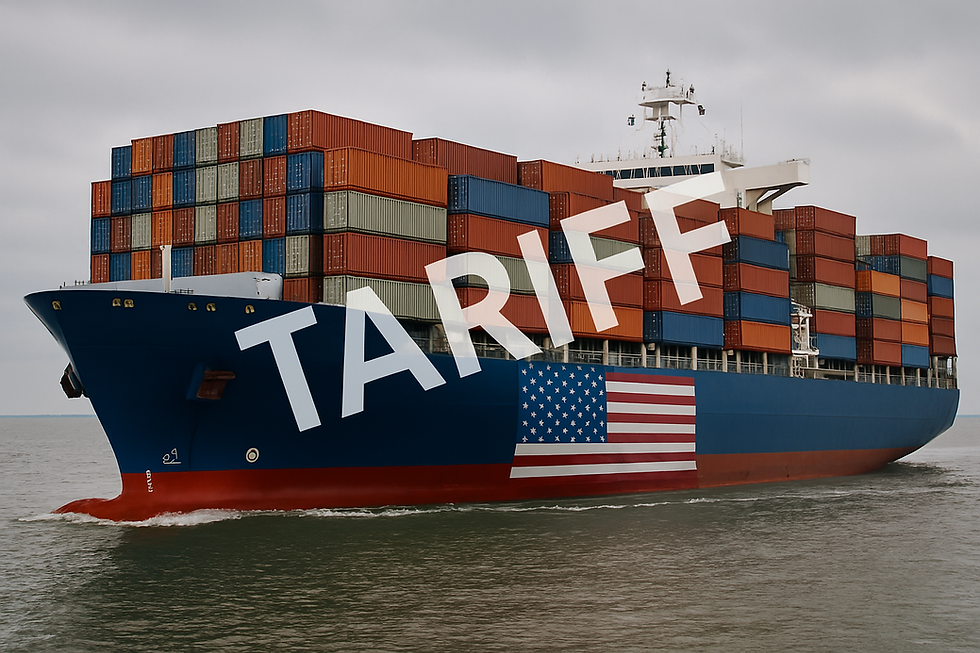Public Opinion: Trump's Tariffs Will Hamper Biotechnology in the U.S.
- Sarp Oktay
- Apr 8, 2025
- 3 min read
Tariffs Threaten U.S. Biotech Innovation and Patient Access, BIO Survey Warns
A recent survey by the Biotechnology Innovation Organization (BIO) paints a stark picture of how President Donald Trump's proposed U.S. import tariffs could disrupt the biotechnology sector, impacting drug affordability, innovation, and investment.
According to the survey, nearly 90% of U.S. biotech companies depend on imported components for at least half of their FDA-approved products. Introducing tariffs on critical imports from the EU, Canada, and China could sharply increase manufacturing costs and delay lifesaving treatments.
Key findings from BIO’s member survey include:
94% of biotech firms expect higher costs from EU tariffs, 82% would be affected by tariffs on Canada, and 70% anticipate cost hikes from China.
50% of companies say EU tariffs would force them to find new research and manufacturing partners.
Half would need to rework or delay regulatory filings, threatening timelines for drug development.
80% say they'd need at least 12 months to identify alternative suppliers, and 44% would require more than two years.
Over 50% anticipate difficulty securing funding and continuing R&D efforts if tariffs are enacted.
BIO President & CEO John F. Crowley emphasized the long-term risk to U.S. leadership in medical innovation, urging policymakers to avoid disrupting the fragile biotech supply chain. While BIO supports domestic manufacturing incentives, Crowley warned that reshoring production will take years and must be carefully managed to avoid harming patients.
BIO calls for:
Faster regulatory pathways for new treatments.
Stronger capital formation to support biotech growth.
Protection of intellectual property rights to sustain innovation.
The message is clear: while reshoring is vital for national and economic security, blunt-force tariffs could do more harm than good, derailing innovation and jeopardizing patient access to cutting-edge therapies.
Read the full BIO story here: https://tinyurl.com/2avrfywn

Our Take on the Proposed U.S. İmport Tariffs on the Biotechnology Industry
At Sarem Consulting, we believe the way forward to enable biotechnology innovation is through fostering strong research collaboration and business partnerships across continents. Breakthroughs are often achieved via the exchange of know-how, technology and materials between multiple parties from different countries.
To name a recent example, let's remember Pfizer (U.S.) and BioNTech (Germany) cross-continental partnership to develop the first COVID-19 vaccine. Pfizer put forward its clinical trial infrastructure and manufacturing scale-up, where BioNTech pitched in their mRNA platform. The combined technologies and capabilities of the two parties led to the world's fastest developed & approved vaccine, cutting the timeline from 10-15 years to under 1 year, saving millions of lives across the world.
Let's recall another one that made what was once thought impossible possible, fixing genetic diseases. Casgevy, a gene editing therapy for treating sickle cell disease and β-thalassemia, was made possible through the collaboration of CRISPR Therapeutics (Switzerland) and Vertex Pharmaceuticals (U.S.). Casgevy helped trigger a paradigm shift, paving the way for more gene therapies to be developed and treat patients.
To wrap things up, it is good to see the U.S. working to take back its economy's control and incentivize its industry to grow its in-house and onshore capabilities. However, we believe it should seek a balance to make sure not to irrecoverably harm the industry and patient access in the short term. We are optimistic about the future and hopeful of what is to come from the world's researchers' collective biotechnology innovations.




Comments